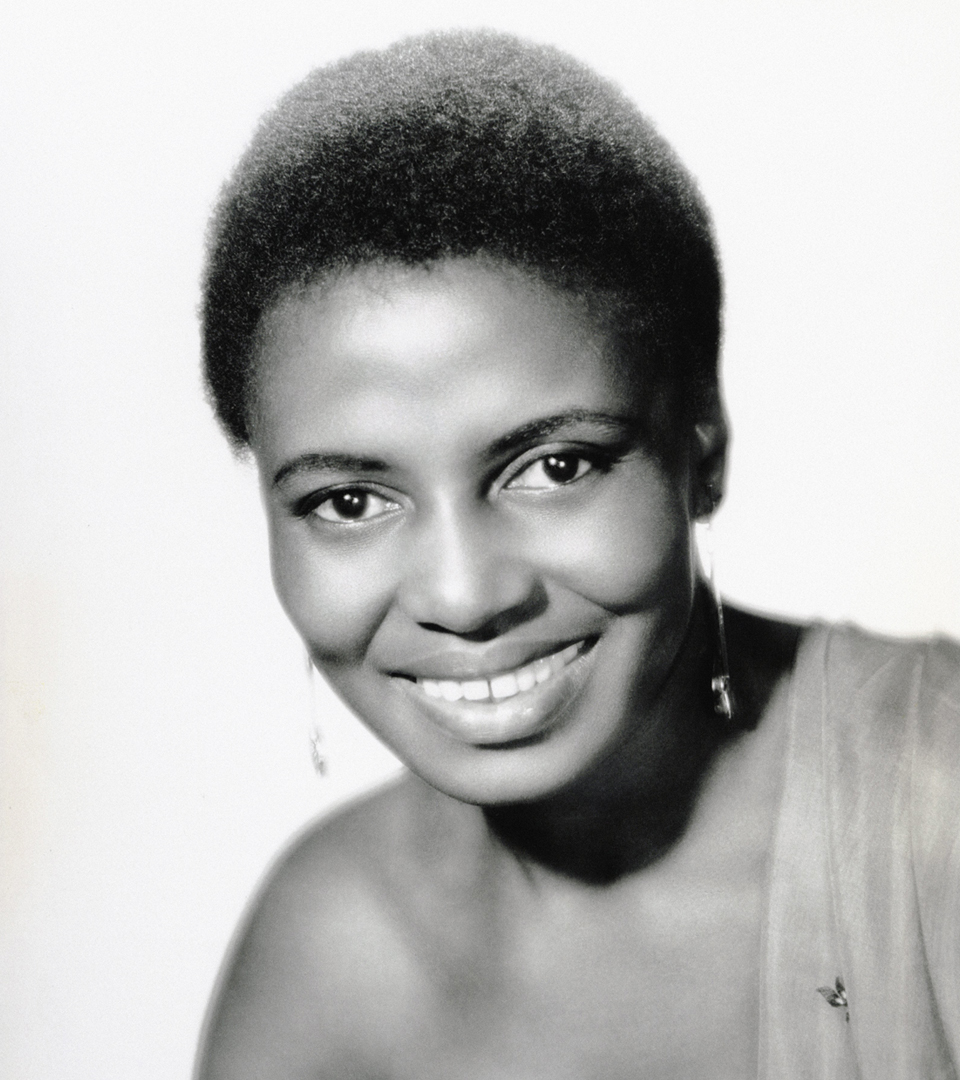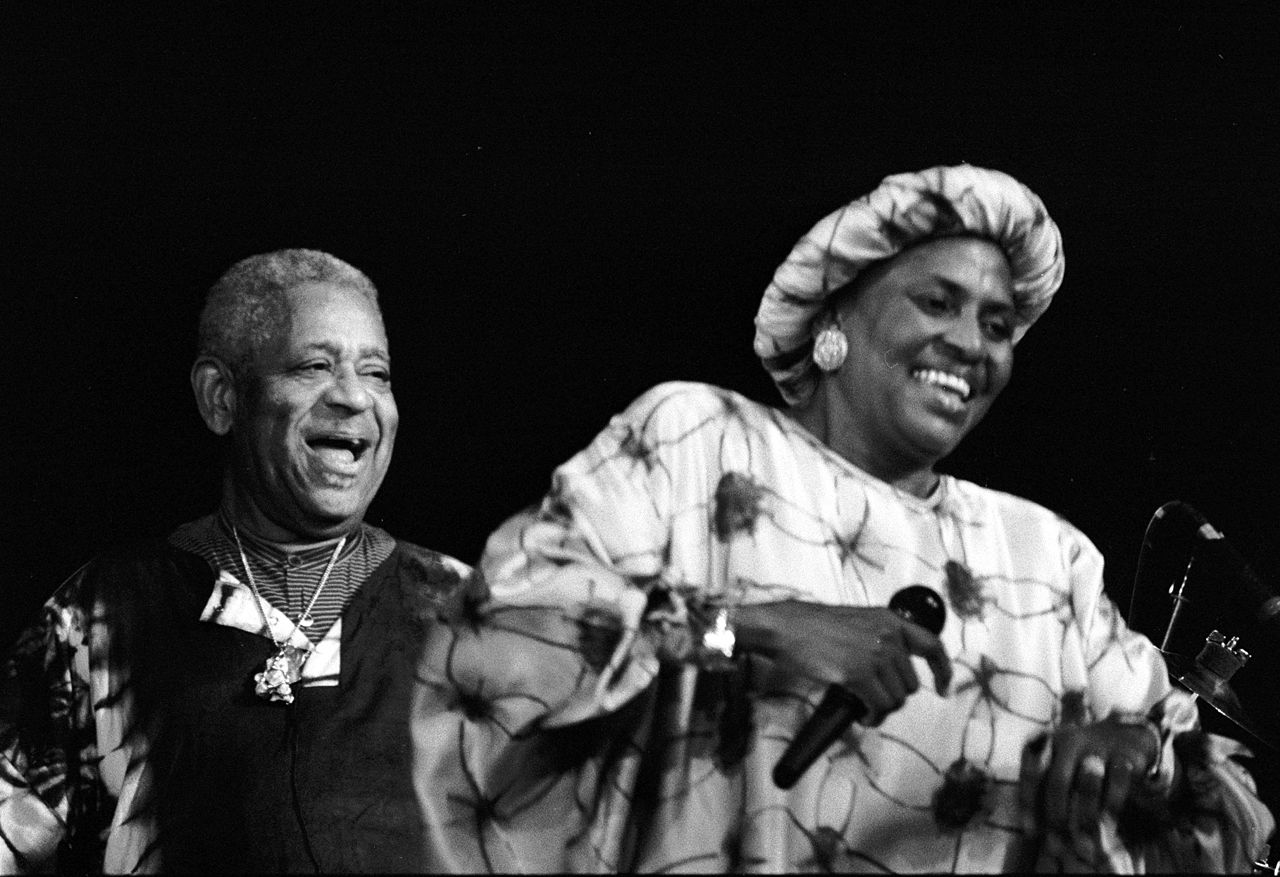Miriam Makeba
Miriam Makeba

Miriam Makeba, born in Johannesburg to Swazi and Xhosa parents, faced adversity early in life following the death of her father. Forced to seek employment as a child, she endured a brief and reportedly abusive first marriage at the age of 17. In 1950, she gave birth to her only child and later survived breast cancer.

Makeba's remarkable vocal talent was evident from a young age, and she began her professional singing career in the 1950s. She performed with various groups, including the Cuban Brothers, the Manhattan Brothers, and the all-female ensemble the Skylarks. Their repertoire encompassed a blend of jazz, traditional African melodies, and Western popular music.

In 1959, Makeba's career took a significant turn when she appeared in the anti-apartheid film "Come Back, Africa." The exposure garnered from the film brought her international acclaim, leading to performances in Venice, London, and New York City. It was in London where she crossed paths with American singer Harry Belafonte, who became both a mentor and collaborator.

In 1959, Makeba's career took a significant turn when she appeared in the anti-apartheid film "Come Back, Africa." The exposure garnered from the film brought her international acclaim, leading to performances in Venice, London, and New York City. It was in London where she crossed paths with American singer Harry Belafonte, who became both a mentor and collaborator.

Relocating to New York City, Makeba quickly gained popularity and recorded her debut solo album in 1960. However, her attempt to return to South Africa that same year for her mother's funeral was thwarted by the government's restrictions.
Miriam Makeba's journey from the hardships of her youth to international stardom symbolizes resilience and determination. Despite facing numerous obstacles, she emerged as a beacon of hope and a powerful voice against apartheid, using her music and platform to advocate for justice and equality./f/101652/1652x1056/bd24bec22b/makeba-header.jpg)
Miriam Makeba's career soared in the United States, marked by the release of several albums and hit songs, notably "Pata Pata" in 1967. Collaborating with Harry Belafonte, she earned a Grammy Award for Best Folk Recording for their 1965 album "An Evening with Belafonte/Makeba." Makeba also took a stand against the South African government, testifying at the United Nations and actively participating in the civil rights movement.
In 1968, Makeba's marriage to Stokely Carmichael, a prominent figure in the Black Panther Party, led to a loss of support among white Americans. Consequently, her US visa was revoked while she was traveling abroad, prompting her and Carmichael to seek refuge in Guinea. Despite these challenges, Makeba continued to perform, primarily in African nations, often participating in independence celebrations. Her music became more overtly critical of apartheid, exemplified by the 1977 song "Soweto Blues," penned by her former husband Hugh Masekela, which addressed the Soweto uprising.

Following the dismantling of apartheid in 1990, Makeba returned to South Africa. She remained active in the music industry, collaborating on projects such as a 1991 album with Nina Simone and Dizzy Gillespie and appearing in the 1992 film "Sarafina!". Additionally, Makeba was appointed as an FAO Goodwill Ambassador in 1999 and tirelessly advocated for humanitarian causes.

Tragically, Miriam Makeba passed away from a heart attack during a concert in Italy in 2008. Her legacy as a fearless advocate for justice, both through her music and activism, endures as an inspiration to generations worldwide.
Miriam Makeba was a pioneering figure in African music, recognized globally for her contributions to world music and Afropop genres. As one of the first African musicians to achieve worldwide acclaim, she played a pivotal role in introducing African music to Western audiences. Despite her diverse background, Makeba was often regarded as a symbol of Africa by Western audiences and was revered as a style icon both in South Africa and abroad.
Makeba's music served as a powerful tool for advocating against apartheid, with many of her songs carrying poignant messages of resistance and criticism toward the oppressive system. Her vocal opposition to apartheid made her a prominent figure in the fight for justice and equality, especially following the revocation of her right to return to South Africa.

Upon her passing, former South African President Nelson Mandela hailed Makeba's music as an inspiration that instilled a profound sense of hope among people worldwide. Miriam Makeba's legacy continues to resonate, not only through her groundbreaking music but also through her unwavering commitment to social justice and human rights. She remains an enduring symbol of resilience and cultural pride for generations to come.
Citations
- Redmond 2013, p. 236.
- a b c d e f Allen 2011, Makeba, Miriam Zenzi.
- a b c d Feldstein 2013, p. 34.
- a b c d e Jolaosho 2021, Early Years.
- ^ Carmichael & Thelwell 2003, pp. 651–652.
- ^ Blocker, Fahey & Tyrrell 2003, p. 12.
- ^ Schwarz-Bart 2003, p. 208.
- ^ Castledine 2011, p. 229.
- a b c d e f g h i j k l m n o p q Ewens, Graeme (11 November 2008). "Obituary: Miriam Makeba". The Guardian. Retrieved 26 March 2012.
- a b c d e f g h i j k l m n o p q r s t u Jaggi, Maya (29 April 2000). "The return of Mama Africa". The Guardian.
a b c Bordowitz 2006, p. 333.













































